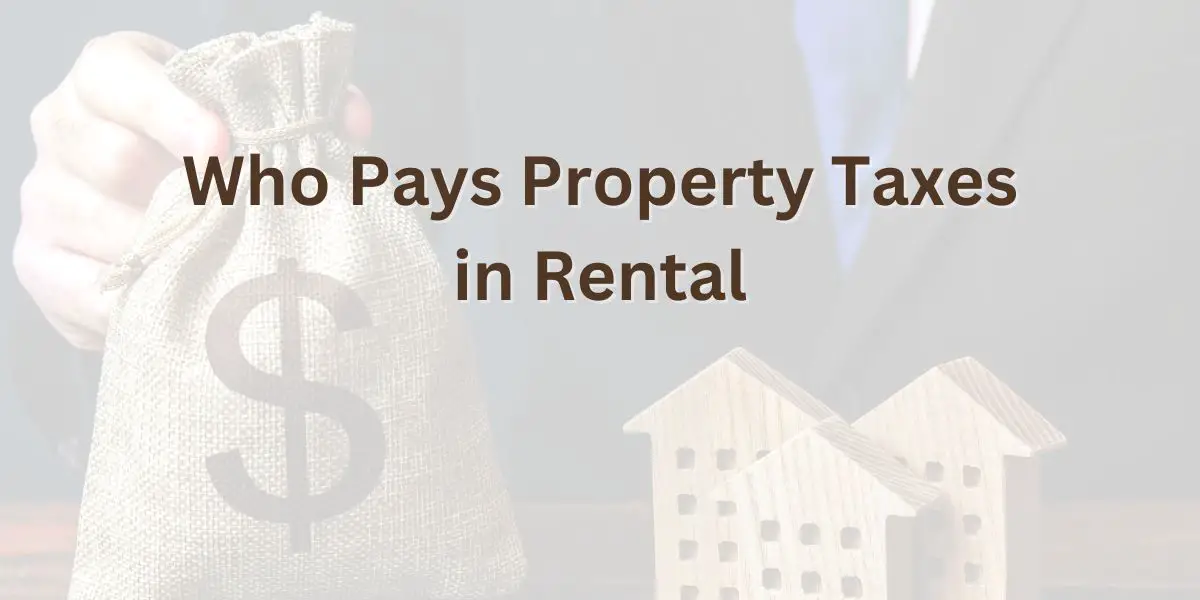Property taxes are a common, yet often misunderstood, aspect of the rental landscape. Understanding who bears the responsibility for property taxes is crucial for both landlords and tenants. In this article, we’ll delve into the intricacies of property taxes in rental situations, exploring the roles of landlords and tenants, the impacts on rental prices, and various other aspects that contribute to this complex dynamic.
Property taxes are levies imposed by local governments on property owners. In the context of rentals, the question arises: who pays these taxes? Let’s unravel this matter to provide clarity for both landlords and tenants navigating the rental terrain.
Landlord’s Responsibility
Typically, landlords bear the primary responsibility for property taxes. They own the property and, as such, are expected to cover the associated tax burdens. However, the nuances of this responsibility can vary based on factors like location, property type, and lease agreements.
Passing Costs to Tenants
While landlords generally foot the property tax bill, there are instances where they may pass some of these costs to tenants. Lease agreements may include provisions allowing landlords to transfer a portion of property taxes to renters. It’s essential for tenants to be aware of such clauses and understand the legalities involved.
Impacts on Rental Prices
The nexus between property taxes and rental prices is intricate. An increase in property taxes can potentially lead to elevated rental prices. Striking a balance between fair rent pricing and covering property tax expenses is a delicate consideration for landlords.
Property Tax Variation
Property taxes are not uniform across regions. Understanding the variation in property tax rates is crucial for tenants, especially those contemplating relocations. Being informed about regional differences empowers tenants to make financially savvy decisions.
Tenant Rights and Protections
Tenants are not without rights when it comes to property taxes. Legal frameworks exist to protect tenants from unfair property tax burdens. Understanding these rights and potential legal recourse is vital for tenants facing property tax-related challenges.
Communication Between Landlords and Tenants
Transparent communication is key in navigating property tax issues. Landlords should proactively communicate with tenants about property tax implications, fostering a collaborative and informed rental relationship.
Loans for ITIN Holders: Unlocking Financial Opportunities
Tax Deductions for Landlords
Landlords, too, have opportunities for relief through tax deductions related to property taxes. Responsible property management practices, coupled with awareness of available deductions, can benefit landlords financially.
Government Programs
Government programs exist to assist both landlords and tenants in understanding and managing property taxes. Availing these resources can provide valuable information and support for those navigating the complexities of property taxation.
Challenges in Property Tax Systems
The property tax system is not without challenges. Common issues include assessment discrepancies and outdated valuation methods. Advocacy for improvements in property tax structures is essential for creating fair and effective systems.
Community Impact
Property taxes contribute to community development. Exploring the positive impacts of property taxes on local infrastructure and services helps contextualize their role in fostering vibrant communities.
Economic Trends and Property Taxes
Economic trends can influence property taxes. Understanding these trends provides insights into the future trajectory of property taxes in rental markets, allowing both landlords and tenants to anticipate changes.
Tips for Tenants
Empowering tenants with practical tips on navigating property tax-related issues is crucial. From understanding lease agreements to researching regional property tax rates, informed tenants can better advocate for their rights and financial well-being.
Conclusion
In conclusion, property taxes in rental situations are a multifaceted aspect of the landlord-tenant dynamic. By understanding the responsibilities, rights, and impacts associated with property taxes, both landlords and tenants can foster transparent, communicative, and mutually beneficial rental relationships.
Who Holds Economics in Her Hand
FAQs
Q: Can landlords increase rent solely due to property tax hikes?
A: Landlords may consider property tax increases, but they must adhere to legal regulations governing rent adjustments.
Q: Are property tax rates the same nationwide?
A: No, property tax rates vary by location, and tenants should be aware of regional differences.
Q: Can tenants dispute property tax pass-throughs in lease agreements?
A: Tenants may have grounds to dispute such provisions, and legal advice should be sought in such cases.
Q: How can landlords communicate property tax changes effectively to tenants?
A: Clear and transparent communication, preferably in writing, is crucial to ensure understanding.
Q: Are there government programs to assist tenants facing challenges with property taxes?
A: Yes, some government programs offer support and information for tenants dealing with property tax issues.



